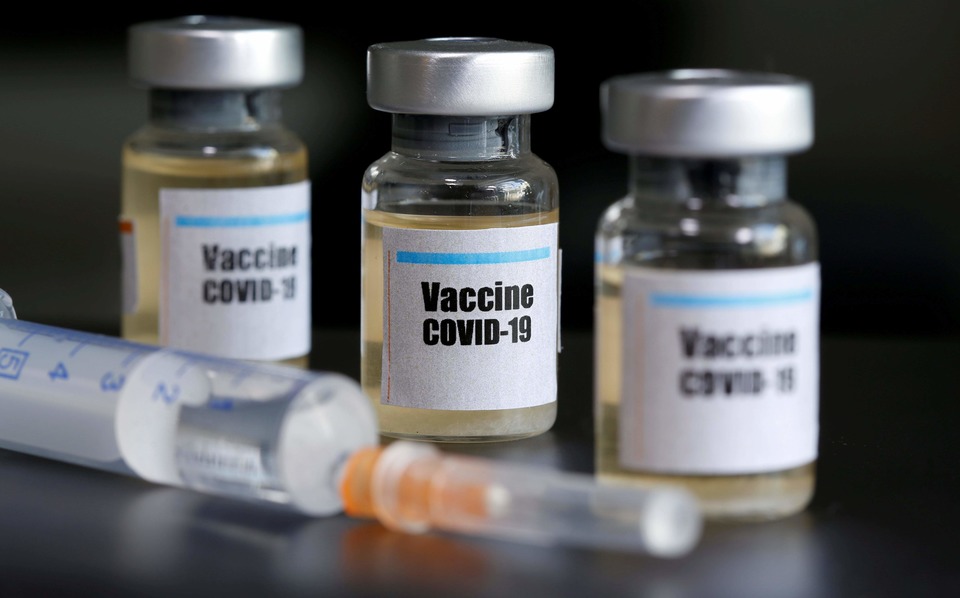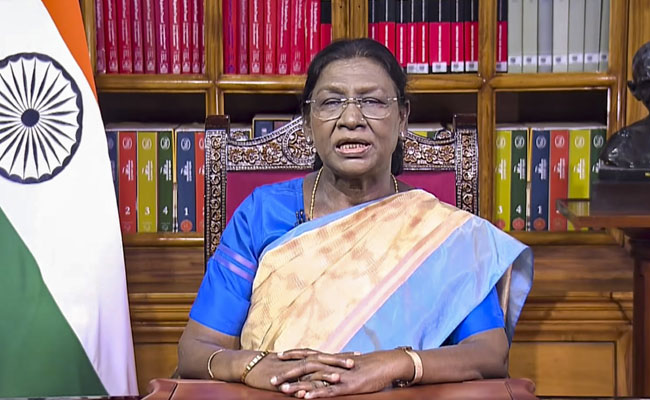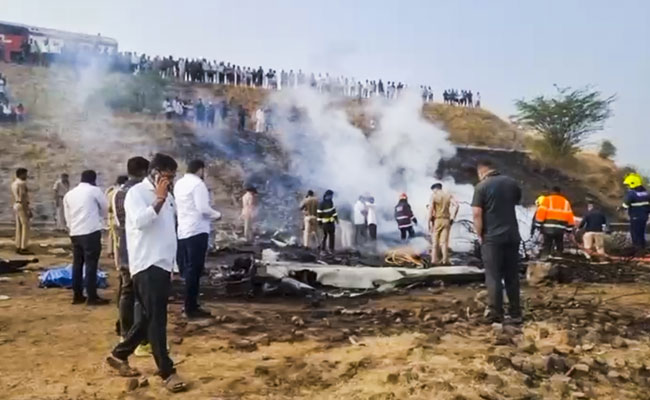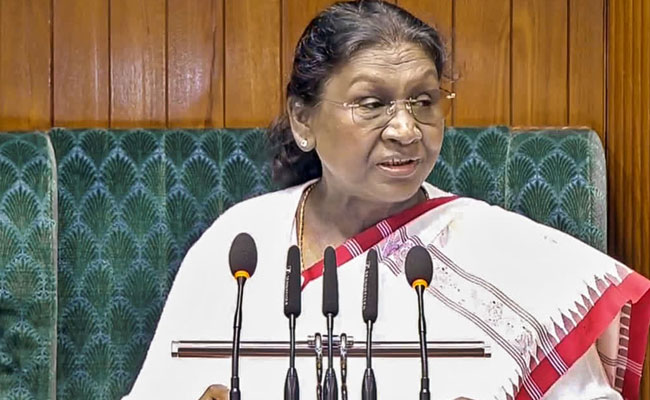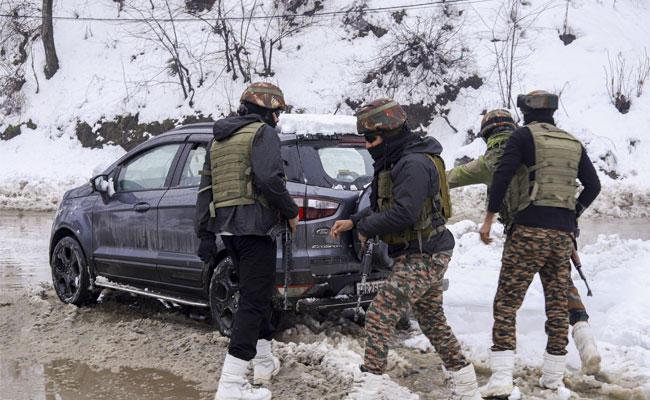New Delhi: The extremely low temperature of minus 70 degrees Celsius required for storing a potential COVID-19 vaccine developed by Pfizer poses a big challenge for its delivery in a developing nation like India, especially in its smaller towns and rural areas where maintaining such cold chain facilities would be very difficult, AIIMS Director Dr. Randeep Guleria said on Wednesday.
Most vaccines in India need to be stored at a temperature of two to eight degrees Celsius. The lowest minimum temperature at which vaccines can be kept to maintain the cold chain in most areas in the country is minus 25 degrees Celsius, Guleria said.
He, however, said the first set of results announced by Pfizer Inc. and BioNTech SE from the Phase 3 vaccine trial, showing a 90-per cent efficacy in preventing the coronavirus infection, is quite encouraging.
"The extremely low temperature of minus 70 degrees Celsius required for the potential anti-coronavirus vaccine developed by Pfizer poses a big challenge for its delivery in a developing nation like India.
"Storing vaccines at such a low temperature and maintaining such cold chains in smaller towns and cities is going to be very difficult," Guleria said.
He stressed that the data released by the firms developing vaccines have to be studied and it has to be seen how long the immunity would last.
About the recent surge in COVID-19 cases in Delhi, Guleria said festivities or heavily crowded marketplaces may have acted as "superspreader spots" and stressed the need to remain vigilant and follow COVID-appropriate behavior such as wearing masks, maintaining physical distancing, respiratory etiquette, and hang hygiene diligently.
Delhi recorded its sharpest single-day spike of 7,830 fresh COVID-19 cases on Tuesday, which took the national capital's infection tally to over 4.5 lakh.
Pfizer Inc. and BioNTech SE on Monday said their vaccine candidate was found to be more than 90 percent effective in preventing COVID-19.
"Today is a great day for science and humanity. The first set of results from our Phase 3 COVID-19 vaccine trial provides the initial evidence of our vaccine's ability to prevent COVID-19," Pfizer Chairman and CEO Albert Bourla said.
Asked if India was considering a tie-up with Pfizer for its COVID-19 vaccine and whether the country has the infrastructure for the specialized cold chain requirement for this vaccine, the health ministry on Tuesday said the National Expert Group on Vaccine Administration for COVID-19 is in talks with all the vaccine manufacturers, including domestic and foreign ones.
Let the Truth be known. If you read VB and like VB, please be a VB Supporter and Help us deliver the Truth to one and all.
New Delhi (PTI): President Droupadi Murmu on Wednesday said the world saw the valour of Indian armed forces through Operation Sindoor when they destroyed terror camps on the strength of their own resources and asserted that any terror act will be responded with decisive action.
"India has proved that power can be used with responsibility and wisdom. The world has seen the valour and courage of Indian armed forces through Operation Sindoor," Murmu said in her address to both Houses of Parliament, marking the beginning of the Budget Session.
"Our nation, on the strength of our own resources, destroyed terror camps. My government sent a message that any act of terror will be responded to with resolute and decisive action," the President said, amid thumping of desks by Prime Minister Narendra Modi and other parliamentarians.
Murmu said the suspension of the Indus Water Treaty was part of India's fight against terror.
"We are also working on Mission Sudarshan Chakra to further strengthen national security," the President said, adding that security forces have also taken decisive action against Maoist terror.
Following Operation Sindoor, she said, the trust on Indian defence platforms has increased.
Murmu further said her government was committed to social justice in the country.
In the third term of the government, she said, work is being done to further empower the poor, and social security benefits are available to nearly 95 crore citizens now.
"My government is committed to true social justice," she said, adding that 25 crore Indians moved out of poverty in the last 10 years.
The President also said the government has been successful in tackling corruption and scams, and ensuring proper use of public funds.
"For India, the end of the first 25 years of this century has been filled with several successes, proud achievements and extraordinary experiences. In the last 10-11 years, India has strengthened its foundation in every sector," she said.
Lauding India's celebration of the 350th martyrdom day of the ninth Sikh guru, Guru Tegh Bahadur, and the country's tribute to revered tribal leader and freedom fighter Birsa Munda on his 150th birth anniversary, Murmu said, "when the country remembers the contribution of its ancestors, the new generation gets inspiration, which further speeds up our journey towards Viksit Bharat (Developed India)."
"The country celebrated the 350th Shaheedi Diwas of Sri Guru Tegh Bahadur Ji. During the 150th birth anniversary of Birsa Munda, the entire country paid him tribute and remembered his contribution to the tribal community," the President said.
"The events related to the 150th birth anniversary of Sardar Vallabhbhai Patel further strengthened the sense of Ek Bharat, Shresht Bharat (One India, Best India). The entire country became witness to how Bharat Ratna Bhupen Hazarika's birth anniversary celebrations filled the country with music and a sense of unity," Murmu said.
The President's mention of the Viksit Bharat – Guarantee for Rozgar and Ajeevika Mission (Gramin) (VB-G RAM G) scheme was met with loud protests from the Opposition benches.
Murmu said the VB-G RAM G initiative would provide guarantee for 125 days of work, would stop corruption and leakages, and provide a new impetus to rural development.
The Opposition members raised slogans demanding its rollback, even as the treasury benches thumped their desk in support of the scheme.
The President had to take a brief pause amid opposition cries of "vapas lo" (roll back) against the Act that replaced the Mahatma Gandhi National Rural Employment Guarantee Act (MGNREGA).
The Opposition parties have been demanding withdrawal of the VB-G RAM G Act and restoration of MGNREGA as a rights-based law in its original form, the right to work and the authority of panchayats.
The government has, meanwhile, claimed that the new Act will further strengthen the guarantee for rural employment.

